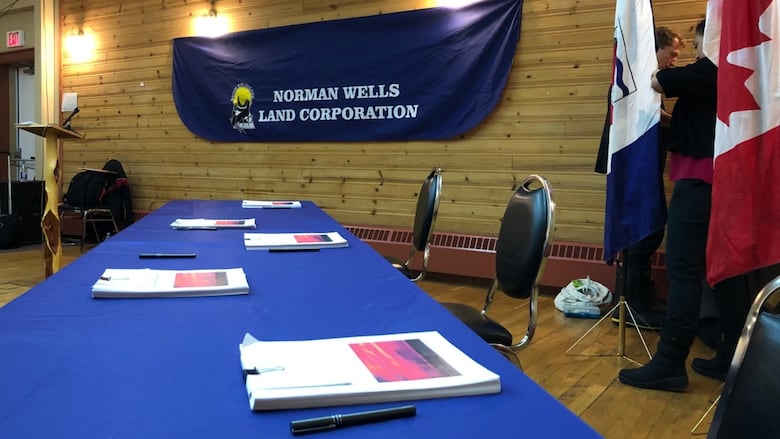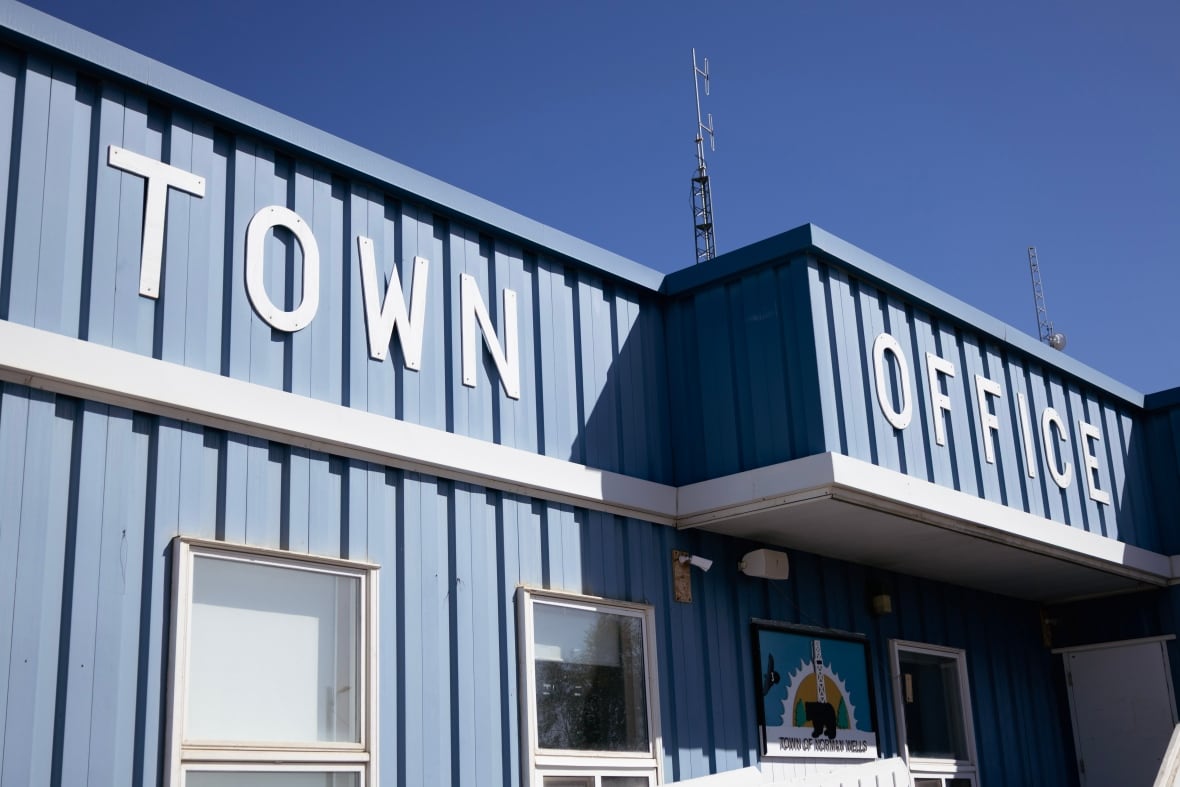Tłegǫ́hłı̨ Got'įnę celebrates self-government agreement with events this week in Norman Wells, N.W.T.
Agreement, ratified by community earlier this year, to be passed into law by territorial and federal gov'ts

The Tłegǫ́hłı̨ Got'įnę government in Norman Wells, N.W.T., is this week celebrating the ratification of a self-government agreement, with music, games and community gatherings.
It's a significant milestone on a journey that began decades ago when the Sahtu Dene and Métis signed a land claim agreement with the federal government in 1993. That agreement affirmed their right to negotiate self-government, and years of dialogue would follow.
The Tłegǫ́hłı̨ Got'įnę government, formerly the Norman Wells Land Corporation, signed a framework agreement in 2007 and an agreement-in-principle in 2019. Then, last November, the three negotiating parties — the Tłegǫ́hłı̨ Got'įnę, the Government of the Northwest Territories, and the Government of Canada — initialled a draft final self-government agreement in Ottawa. In March, community members voted to ratify it.
Local accommodations in Norman Wells have been filling up this week with guests from across the N.W.T. Most of the festivities will begin on Thursday and Friday, with dinners and a drum dance. Other activities will continue through the weekend, including a golf tournament, storytelling, hikes, elders tea, fiddle dances and more.
The premier is expected to attend, along with other government leaders.
Implementing the agreement
The agreement will next be passed into law by the territorial and federal governments, and that will be followed by a year's transition period.
Work toward self governance has been ongoing across the N.W.T. for years. The Tłı̨chǫ Agreement in 2003 became the first combined land claim and self government agreement signed in the N.W.T.
The Sahtu communities of Fort Good Hope, Norman Wells, Tulita, Délįnę, and Colville Lake have all been a part of self governance negotiations and Délı̨nę became the territory's first self-governed community, and Canada's first Indigenous/public self-government at the community level in 2016.
The Tłegǫ́hłı̨ Got'įnę government will operate differently than Délı̨nę. When the agreement first comes into effect, the Tłegǫ́hłı̨ Got'įnę government will be recognized as an "exclusive Indigenous government," and it will not replace the Town of Norman Wells because of the town's demographics.

The agreement states that the Tłegǫ́hłı̨ Got'įnę membership needs to reach at least 70 per cent of the total population of Norman Wells before it can become the public government. It could request to do so before that threshold is reached but would need consent from both the territorial and federal governments.
This means the Town of Norman Wells will still administer municipal services, while the Tłegǫ́hłı̨ Got'įnę government will have other responsibilities toward its membership. The agreement sets out how the government and town will work alongside each other, including with a joint committee of representatives to meet regularly and discuss "how the rights of the Tłegǫ́hłı̨ Got'įnę can be considered and respected by the town when the Town makes policies and passes bylaws."
Sahtu MLA Danny McNeely says seeing Délı̨nę progress in areas like infrastructure projects and education programs since becoming self-governed shows the momentum toward these agreements.
"Having that control over the destiny of self-government is really overwhelming to see after the discussions have happened. There's always discussions and then there's implementation. It really sets an example of what the self-government could do," said McNeely, who will be attending this week's celebrations.
McNeely said the Tłegǫ́hłı̨ Got'įnę self government agreement has been tabled by the committee of accountability and oversight and it will take some time to review.
Tłegǫ́hłı̨ Got'įnę government jurisdiction
After legislation has passed and the year of transition is complete, the Tłegǫ́hłı̨ Got'įnę government will have full jurisdiction over areas like education, language and culture, social services, and local governance for its members. The new government will pass its own laws in these areas without needing the approval of the territorial or federal government.
For areas like traditional healing services, that will mean having authority over training, certification and regulation.
The agreement also includes jurisdiction to enforce Tłegǫ́hłı̨ Got'įnę laws through sanctions, extra-judicial measures, and hiring enforcement officers. However, the government is not allowed to establish a police force or authorize firearm use and transport, as those terms fall under the Criminal Code.
In areas such as education, the government can oversee things like the development of the curriculum framework and setting the requirements for Grade 12 graduation for its members. The agreement notes that "the Tłegǫ́hłı̨ Got'įnę law must have standards similar to territorial standards.'
The structure of the new government blends traditional and modern political systems. A president will be directly elected by citizens and will serve as the head of government and must live in Norman Wells. The agreement sets out that they will then work alongside a legislative council made up of five to nine members. The legislative council will be able to appoint three to five individuals to a justice council as well as appoint individuals to an executive committee.
During the transitional year, a "starter kit" of laws will be developed as well.

